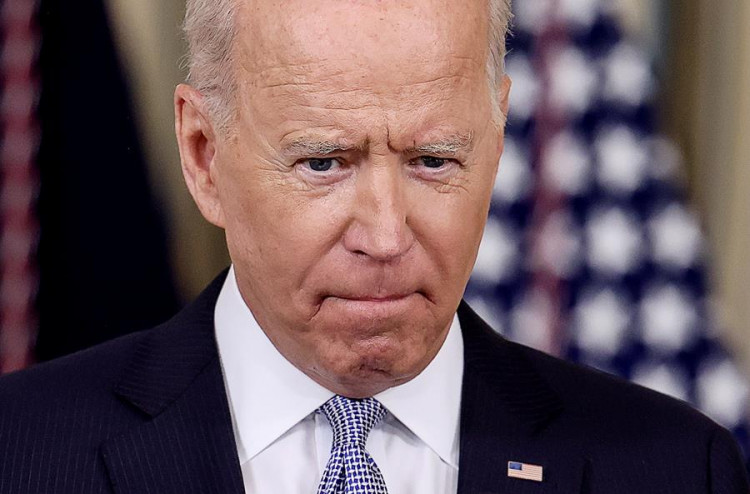President Joe Biden, in a decisive military move, ordered large-scale retaliatory strikes against Iran-backed Houthi militants in Yemen, in coordination with the United Kingdom and other partners. This response, aimed at halting Houthi attacks on commercial shipping in the Red Sea, marks a significant escalation in the ongoing conflict and raises questions about the balance of power and decision-making in matters of international military action.
The strikes, carried out by U.S. and UK forces, targeted Houthi positions to diminish their capacity to continue posing threats to vital maritime routes. Biden, speaking to reporters in Pennsylvania, described the military action as a "success" and emphasized the U.S.'s readiness to respond to further "outrageous behavior" from the Houthis, who have vowed fierce retaliation.
Amidst these developments, Biden's actions have sparked a debate over war powers and the presidential authority to conduct military operations without explicit Congressional approval. This debate transcends party lines, with both progressive Democrats and hard-line Republicans voicing concerns about the constitutional implications of Biden's unilateral action.
Representative Pramila Jayapal, chair of the Congressional Progressive Caucus, highlighted the issue in a social media post, calling the move an "unacceptable violation of the Constitution," pointing to the requirement for Congressional authorization for military actions under Article 1 of the U.S. Constitution.
National Security Council spokesman John Kirby addressed these concerns, stating the administration's confidence in the legal authorities exercised to conduct these strikes. Kirby reassured that the U.S. is "not interested in a war with Yemen" and that the intent is to prevent escalation of conflict. President Biden characterized the strikes as a "defensive action" in response to 27 attacks initiated by Houthi militants in the Red Sea since November.
The political reaction to Biden's decision has been mixed. While some lawmakers, like Senate Republican leader Mitch McConnell and House Speaker Mike Johnson, endorsed the strikes as necessary, others, including Democratic Representatives Cori Bush and Ro Khanna, criticized the move as unconstitutional. Khanna, on CNN, expressed concerns about the increased risk of retaliation against U.S. interests and questioned the lack of Congressional consultation.
Former President Donald Trump, in a post on Truth Social, criticized Biden's foreign policy decisions, contrasting them with his administration's approach. Trump's comments reflect a broader debate among Republican presidential hopefuls regarding the appropriate response to the Houthi attacks in the Red Sea.
Senate Foreign Relations Committee Chairman Ben Cardin and Senate Armed Services Committee Chairman Jack Reed have supported Biden's decision, calling for continued consultation with the administration.
This situation highlights the ongoing struggle in Congress over the scope of the president's war powers and the need for legislative oversight in military actions. The debate is particularly poignant in light of recent efforts to repeal decades-old authorizations for military action and reform existing war powers.
As the situation in Yemen and the broader Middle East remains volatile, the U.S. government faces critical decisions on how to balance national security interests with legal and constitutional mandates. The Biden administration's approach to these challenges will likely shape the U.S.'s foreign policy and military strategy in the region for years to come.






